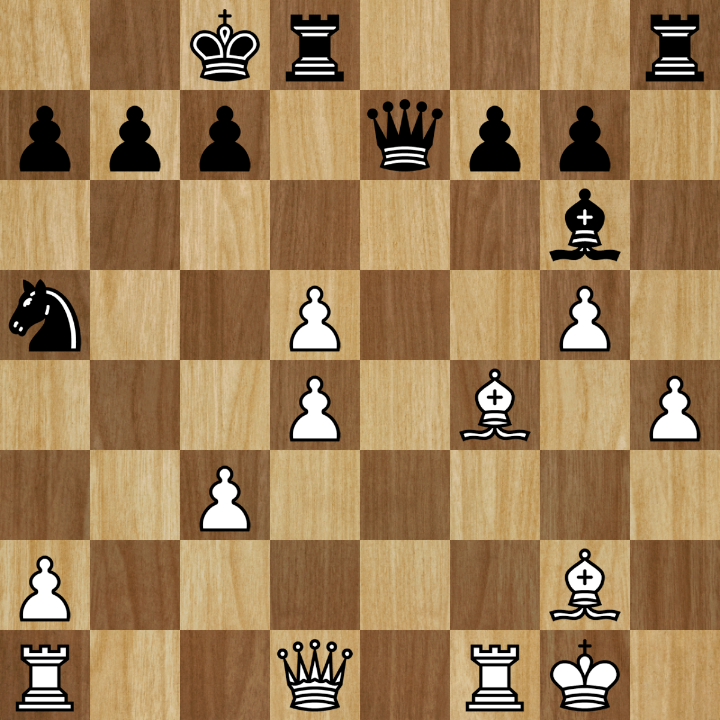Rounds 1-2: The longest day
- Peter Doggers

- Oct 24, 2025
- 4 min read
We're underway! With nearly 650 participants, the third edition of the Amsterdam Chess Open kicked off on Friday morning. The day proved to be longer than anyone expected, as one game in Group A lasted a whopping 116 moves and nearly five and a half hours. At 8:35 PM, the last arbiters were finally able to start preparing the pairings for the next round.
Unfortunately, only two of the four registered grandmasters showed up (Luis Engel and Alexander Bagrationi), although we still hope a third will join us tomorrow (Antonios Pavlidis). Regardless, we are the largest weekend tournament in the Netherlands this year, something we are proud of and are happy to proclaim.

Since the pairings are based on the Swiss system, the top half of each group plays against the bottom half in the first round. In other words, the biggest rating differences are usually found in the first round, and therefore often the most surprising results.
The first result that caught our attention was on the third board, where Djad Maes (2140) of S.V. Spijkenisse defeated IM Anwesh Upadhyaya (2411) from India. And not just any old one: it was a rock-solid victory after Anwesh had survived the risky Portuguese variation of the Scandinavian, only to go wrong later.
Maes-Anwesh
ACO (1), 2025

With 13...Bxc3+ 14.Nxc3 (14.bxc3 Qd7) 14...Bh5 Black keeps things equal. Instead, he played 13...Qe7? 14.0–0 Bxc3 15.Nxc3 Nxc3 16.bxc3 0–0–0 17.cxd5 Na5

...but in this position everyone and your cat would play 18.Qa4 b6 19.Rae1, like Maes did. White has a big advantage there and he finished it off strongly.

A crazy game was played between German Justus Sommer (2123) and Turkish FM Yasin Sari (2320). You should really replay it in its entirety (for example, here), but the short version is that this game should have been a good example of the Steel King. In an open position, the white king moved all the way to c6, but tragically, Sommer didn't quite trust it and settled for a draw in a winning position.
Sommer-Sari
ACO (1), 2025

Sommer could have crowned his work by allowing one more check: 54.Rf7 Qxc3+ 55.Kb7 and Black can resign. Instead, there followed 54.Qe5+ Kg8 55.Qe6+ Kh8 (Second chance.) 56.Qh6+ Kg8 57.Qg6+ Kh8 58.Qh6+ Kg8

Here, 59.Nf5 wins on the spot, but a peace treaty was signed after 59.Qe6+ Kh8.

A nice anecdote in this round was the second-round match in group D1 between Indian player Sandeep Dodmani and Richard Gooijers, who is visually impaired and plays with a special extra board, but who also purchased a sponsorship package that allows him to play on a live board several times.
That live board doesn't have coordinates along the squares, which proved to be a bit of a challenge for Sandeep, a player with an estimated rating of 1000. He went to the arbiters and told them he'd never played on a board without coordinates! To help him get started, our team simply pasted the letters and numbers along the board.

And what about that longest game? Well, it was played between FM Cesar Becx (2069) and CM Henk-Jan Visser (2206), and before 7:30 p.m., the two gentlemen reached a rook endgame in which White was two pawns up, but Black's active king and rook should guarantee a draw.

Both players had about a minute on the clock here, so they played primarily on increment. They did this for an hour(!) until, to the slight relief of the audience and arbiters, Visser claimed a draw based on a threefold repetition.

Of course, a reconstruction was necessary, which is no easy task in a game now over ninety moves long. Replaying and checking took about ten minutes, and guess what? As arbiter Vincent Pandelaar immediately pointed out, Black had the move in the first position and White in the next two (or vice versa, forgive the author after a long day). The claim was rejected.
"Do I get a bonus now?" Becx asked, and indeed, two minutes were added to his clock. The spectacle continued merrily until Visser claimed again at 8:35 PM, this time based on the fifty-move rule, and this time correctly. With almost 5,5 hours and 116 moves, we have a new record to break in our tournament. And, for the record, Visser shared afterward that he had declined a draw on move 11...

With four rounds to go there are still 14 players on a perfect score in the A group. As the tournament progresses, we'll also take a look at the lower groups. For now, we're going to wait and see what will happen in the third round, on Saturday morning at 10 a.m.




Comments